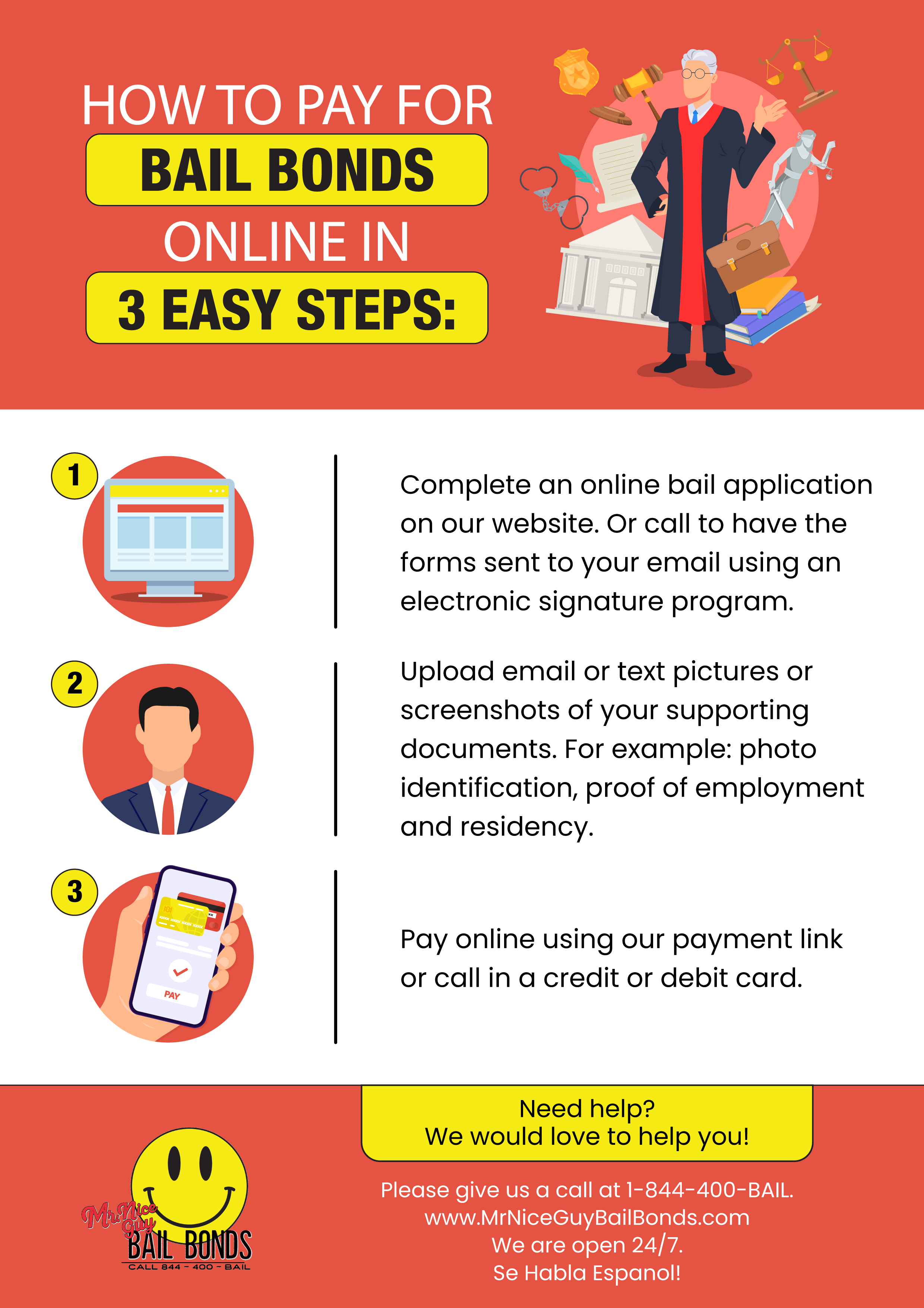Your Complete Overview to Understanding Bond Bond Terms
Navigating the complexities of bail bond conditions is a critical part of properly managing legal obstacles. An extensive understanding of vital ideas such as bond, security, and the ramifications of a failure to show up is important for offenders and their family members. Different types of bail bonds and their associated prices can substantially impact the decision-making procedure. As we explore these aspects, you might discover that false impressions frequently cloud judgment, resulting in possibly damaging effects. What subtleties exist under the surface area of these terms that could shape your method in a time of requirement?
What Is a Bail Bond?
A bail bond is a legal arrangement between an offender, a bond bondsman, and the court, ensuring that the defendant will show up for set up court proceedings for their launch from safekeeping. bail bonds service. This lawful instrument offers to safeguard the passions of the court by providing an economic incentive for the accused to follow judicial needs
Upon the offender's release, the bail bond stays essentially until the final thought of the lawsuit. Failure to show up in court may lead to forfeit of the bond amount, and the bail bondsman might pursue the defendant to recoup the prices incurred. bail bonds service. Understanding the dynamics of bail bonds is essential for offenders and their families as they browse the judicial procedure.
Key Terms Discussed
Comprehending bail bonds involves familiarizing oneself with numerous essential terms that are integral to the procedure. One necessary term is "bond," which describes the quantity of money needed to secure the release of a defendant from protection while awaiting trial. "Bond bail bondsman," or "bail bondsman," is an additional critical term, denoting an expert who supplies the essential funds for bail for a charge, generally a percentage of the overall bond quantity.
" Collateral" is also considerable; it stands for possessions pledged by the offender or co-signer to guarantee the bond's settlement. If the defendant stops working to show up in court, the collateral might be surrendered. The term "indemnitor" refers to the person that concurs to be liable for the bond, typically a family members member or pal of the charged.

Kinds of Bond Bonds
Various kinds of bail bonds offer different functions and accommodate particular situations in the lawful system. The most typical type is the surety bond, where a bondsman guarantees the offender's appearance in court in exchange for a charge, generally 10% of the bail amount. This kind is extensively utilized since it allows individuals that can not afford the complete bond to safeguard their launch.
Another kind is the cash bond, which needs the full bond amount to be paid in cash money to the court. This alternative is frequently liked for lower bond quantities, as it makes certain the accused's launch without involving a bondsman (bail bonds service). If the accused appears in court as required, the money is refunded at the final thought of the situation
In addition, there are property bonds, where realty is made use of as collateral for the bail quantity. This can be a practical option for people who possess home but do not have fluid funds.
Last but not least, government bonds relate to federal situations and are normally extra tough to obtain, typically needing the aid of a specialized bondsman. Recognizing these variants is vital for browsing the bond system successfully.
Typical Misconceptions
Misunderstandings regarding bond bonds commonly cause complication for accuseds and their households. One prevalent misconception is that paying bond warranties release from prison. Actually, bond functions as a financial assurance that the defendant will certainly appear at their arranged court hearings. If they stop working to do so, the bond amount may be waived.
Another common misconception is that all bail bonds coincide. There are a number of sorts of bond bonds, including guaranty bonds, cash bonds, and residential or commercial property bonds, each with unique features and needs. Recognizing these distinctions is crucial for making informed choices.
Additionally, many individuals believe that bail bond representatives are just shylock. Actually, licensed bail bond representatives run within a regulated framework, billing a premium for their services, which is normally a percentage of the complete bond amount.
Finally, some presume that just rich people can manage bond. Bail bond solutions are created to aid those who may not have prompt accessibility to huge sums of cash, allowing a more comprehensive section of the populace to safeguard their release while awaiting test. Clear understanding of these misconceptions can significantly alleviate tension throughout a challenging time.
Comprehending Fees and Costs
While browsing the bail bond process, it is vital to know the costs and expenses connected with safeguarding a bond. Bail bonds usually require a non-refundable costs, which is a portion of the overall bond amount established by the court. This costs usually varies from 10% to 15%, relying on state laws and the bail bond company's plans.
In addition to the premium, there might be various other charges involved. These can include administrative costs for processing the bond, collateral costs if properties are required to protect the bond, and prospective revival fees if the bond needs to be extended. It is important to ask the bail bond representative for a detailed breakdown of all expenses to stay clear of unanticipated expenditures.
Verdict

Comments on “Dependable Bail Bonds You Can Count On.”